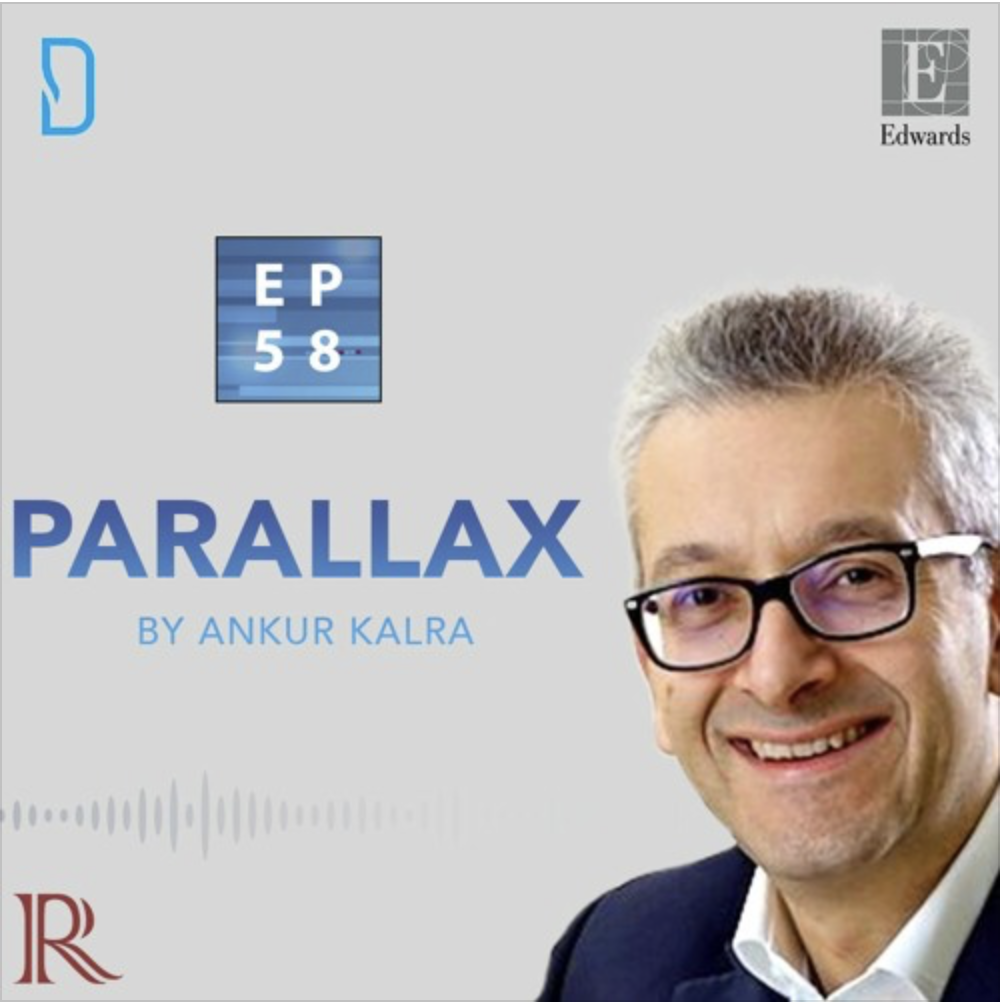
In this TCT 2021 episode of Parallax, Dr Ankur Kalra’s guest is Prof Mamas Mamas, Consultant Interventional Cardiologist at University Hospitals of North Midlands NHS Trust (UHNM), Professor of Cardiology at Keele University and Senior Clinical Editor of TCTmd.
Ankur invites Mamas to talk about the clinical relevance of some of the top studies presented at TCT 2021. Mamas summarises the studies, some of their salient features and the findings. Ankur and Mamas discuss the strategies they currently apply in their US and UK based practices and share how they think the novel data will guide their decision-making.
What are the questions that emerged from the new data? What are the controversies? How do these trials challenge our current practice?
Trials covered in detail include:
FAME 3: A Randomized Trial of FFR-Guided Stenting Compared With CABG
EROSION III: A Randomized Trial of OCT-Guided Intervention in STEMI Patients With Early Infarct Artery Patency
OPTIMUM: Early Outcomes From a Prospective Registry of PCI in Patients at Prohibitive Risk for CABG
Questions and comments can be sent to “podcast@radcliffe-group.com” and may be answered by Ankur in the next episode. Guest @mmamas1973 hosted by @AnkurKalraMD. Produced by @RadcliffeCARDIO.

Brought to you by Edwards: www.edwardstavr.com

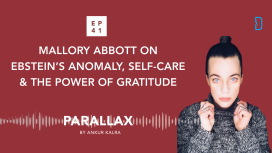
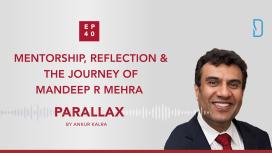
In this week’s episode Ankur’s guest is Dr Mandeep R Mehra, Medical Director of Brigham Heart and Vascular Center and Professor of Medicine at Harvard Medical School.
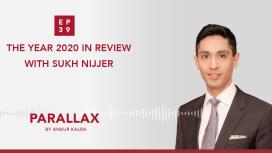
Which COVID19 patients require risk stratification with a stress test? What are the take-home messages for physicians taking care of patients diagnosed with COVID19? What were the key trials of 2020? What can we learn from the negative results of the STRENGHT study? How have studies like STOP-AF influenced clinical practice?
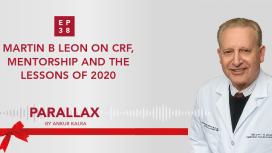
What makes Dr Martin B Leon tick? What is his message to cardiologists and/or researchers at the beginning of their careers? How did the pandemic and his work as a clinician in New York change his perspective?
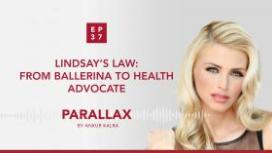
In this episode Ankur asks Lindsay about her treatment path. Lindsay recalls her own journey to taking control of her condition and the important role of information in patient adherence. Lindsay, former Miss Ohio, talks how she used the pageant to create awareness. Lindsay talks about work in state legislation and her plans for 2021.

US Cardiology Review journal, has recently seen a 7-fold increase in female editorial board members in response to journal-based strategic initiatives and the stellar work of USC editorial board leadership, Ankur Kalra (Editor in Chief) and Bill Gogas (Deputy Editor in Chief), who were keen to drive this change. With thanks to Dr Anastasia Mihailidou’s tenure as a new board member and her suggested nominees, ten new female board members have recently joined US Cardiology Review’s editorial board.

In this episode, Mike opens up about his childhood in Stilwell, Oklahoma. Ankur and Mike discuss how the inductive quality of art can complement the deductive principles of science. Mike recalls earlier stages of his career and warns about the blinding effect of the ego-driven, competitive culture of cardiology. Ankur asks Mike about fatherhood and about his role as an educator.
What does it mean to be fearless as a medical professional? How can you protect yourself from the emotional toll of the profession? What is Mike’s advice to early career cardiologists?
Sponsored by Edwards.

During her interventional cardiology fellowship, Dr Baron became fascinated by the implementation of novel technologies. She earned her degree in Clinical Epidemiology and spent a year working at the FDA’s Device Evaluation unit.
In 2019 Dr Baron presented the results of her late-breaking trial, COAPT. Ankur invites Suzanne to discuss the economic analysis of the study and to give a short introduction to cost-effectiveness analysis. Suzanne provides an overview of the trial and they talk about the importance of understanding the value and benefits of new devices from both the patient and the health-economic point of viewpoint.

How should you start building a research programme? What are Chuck Simonton’s thoughts on the relationship between doctors and the industry? What is Chuck’s message to young cardiologists?

After the #MedBikini campaign provoked by a misogynistic study that scrutinized female doctors’ social media posts, this episode is about creating a safer environment for female healthcare professionals.

The charity organisation, Women as One is an agent for women and men to be part of medicine that is built on talent, rather than a privilege. Roxana and Ankur discuss the role of mentorship and family-friendly work environment in mending the broken house of cardiology. Roxana talks about the practical tools that are available for women to take the next steps in their career and achieve their goals.

Dr Kalra asks Dr Mauri about early influences and her traineeship with legendary interventionalists, the late Donald Baim and Richard Kuntz. Dr Mauri talks openly about her decision-making process and the importance of selecting your priorities and committing to them. Ankur asks Laura about her decision to go into industry. Laura shares her thoughts on medical innovations and meeting urgent needs with unique perspectives.
What is Dr Mauri’s advice for a young cardiologist? How did she balance research and patient care? What are the questions that helped her decision making? How does Dr Mauri think about innovations in medicine?

Brigham and Women’s Hospital’s Health Equity Committee decided to confront the status quo by asking: How is racism on a structural level present within our walls?
Ankur Kalra’s guests Michelle Morse (Founding Co-Director of EqualHealth and Assistant Professor at Harvard Medical School) and Lauren Eberly (Cardiology Fellow at the University of Pennsylvania) are co-authors of a retrospective study that demonstrated what had previously only been observed: That black or brown heart failure patients ended up in general medicine rather than specialised cardiology services. Following the publication of the study in November 2019, the Health Equity Committee started to roll out anti-racism trainings and to work on objective admission guidelines to mitigate biased behaviours.
Aarti Bhatt (Assistant Professor of Medicine at the University of Minnesota), member of the Minnesota chapter of Campaign Against Racism, talks about their initiative to support projects that have a positive impact on local communities on a global scale.

In this week’s Parallax, Dr Kanaa’N, the director of the program, and Dr Lahorra, chairman of the Heart, Vascular & Thoracic Department of Akron General introduce the listeners to the foundations of their program and the paradigm shift brought by TAVR.

Ankur Kalra asks Grant W Reed, Director of the Cleveland Clinic’s STEMI program, to reflect on the actions they took and the challenges of delaying cardiovascular procedures in the wake of the coronavirus pandemic. Dr Reed offers insight on the factors that influenced the Cleveland Clinic’s STEMI policy for COVID-19. Ankur and Grant discuss the triage considerations for patients with structural heart disease and the steps the clinic took to protect its healthcare workers.





